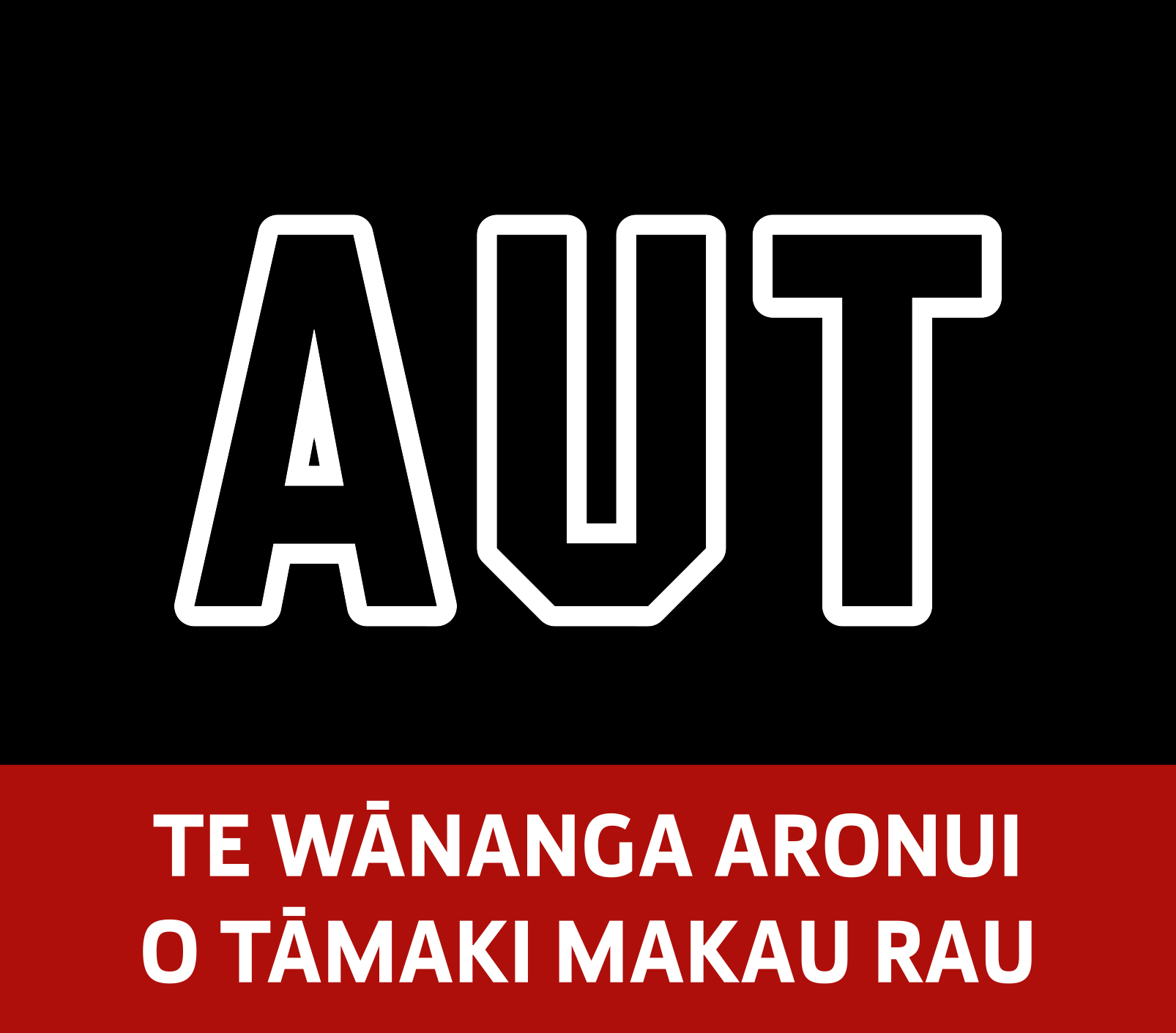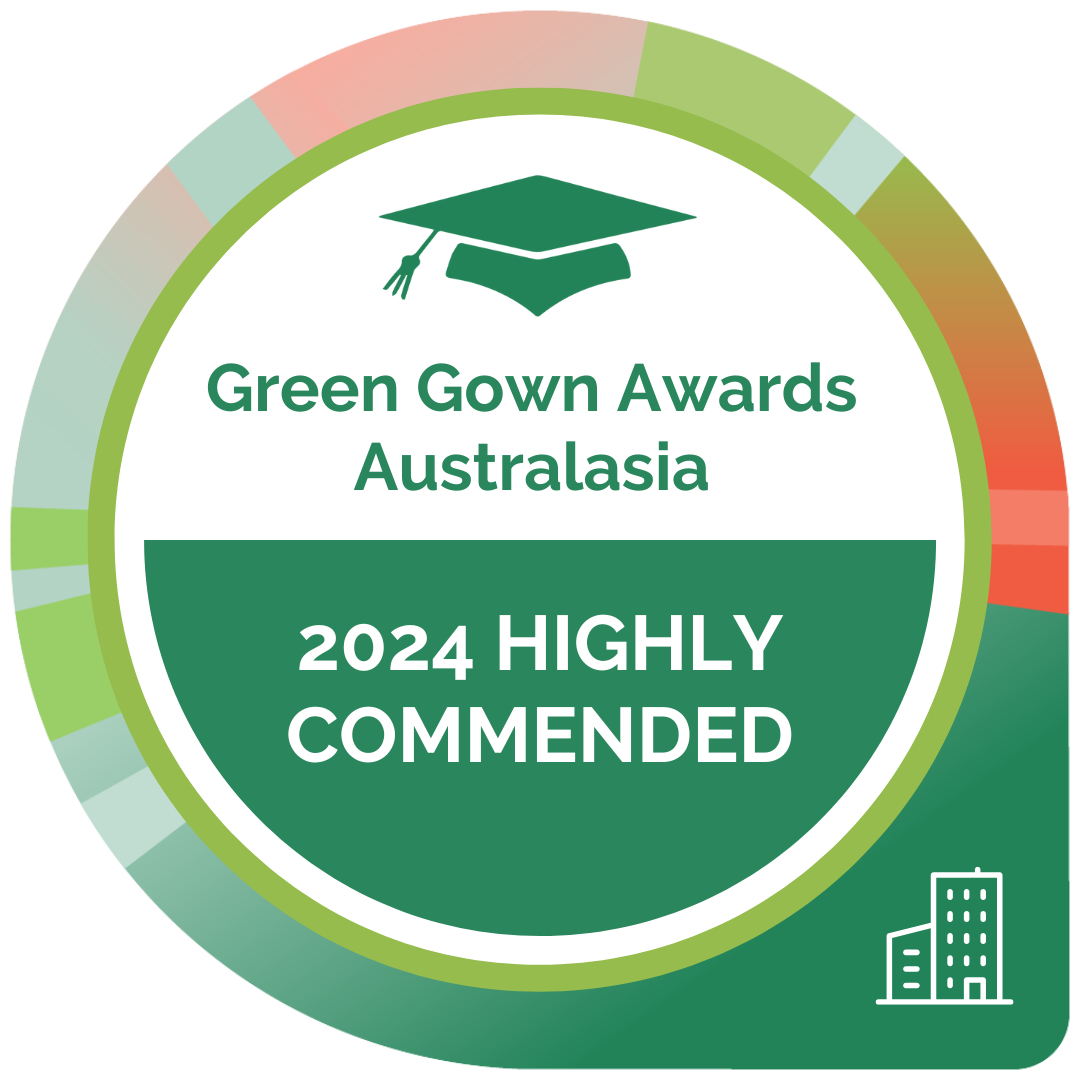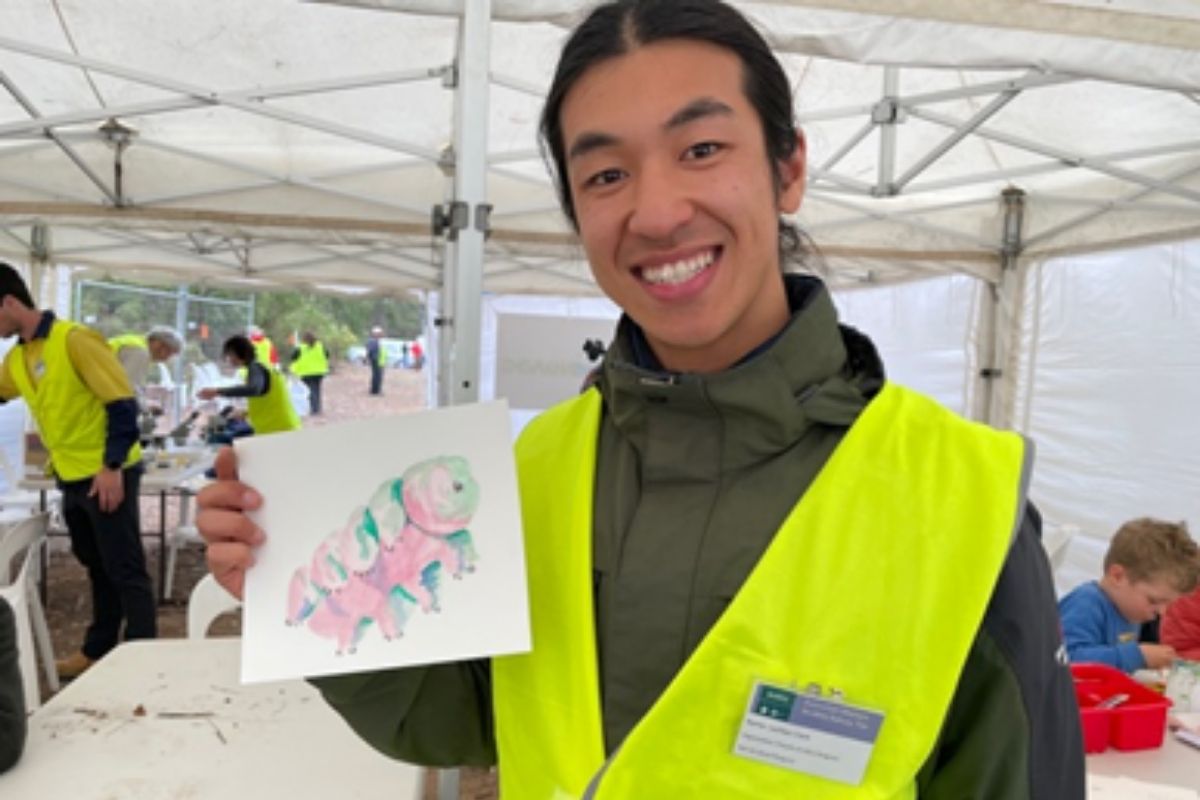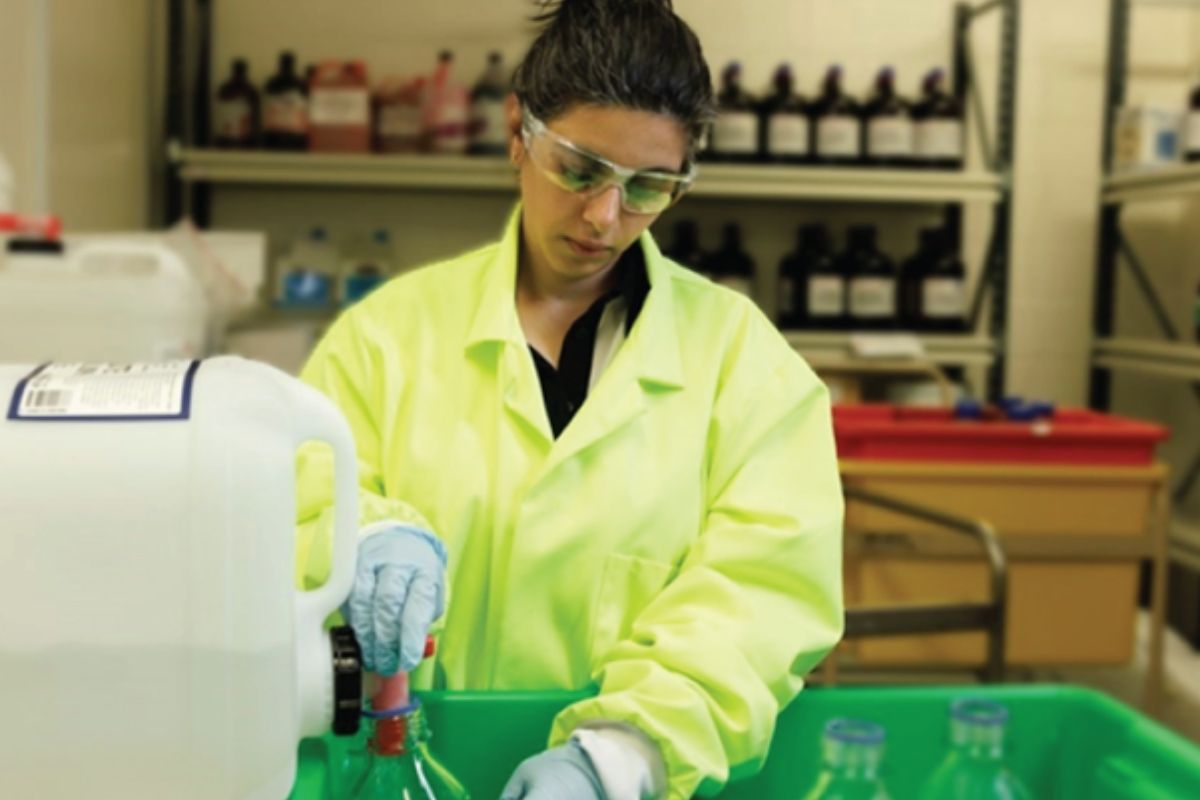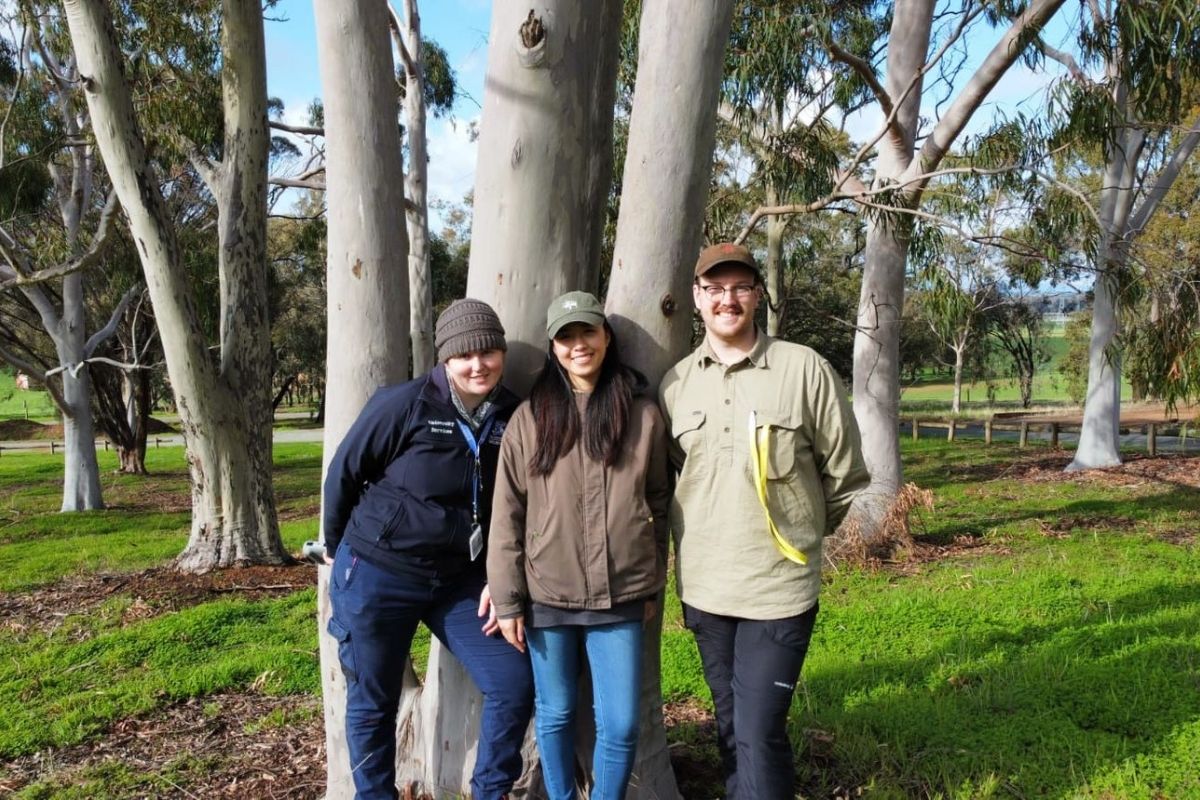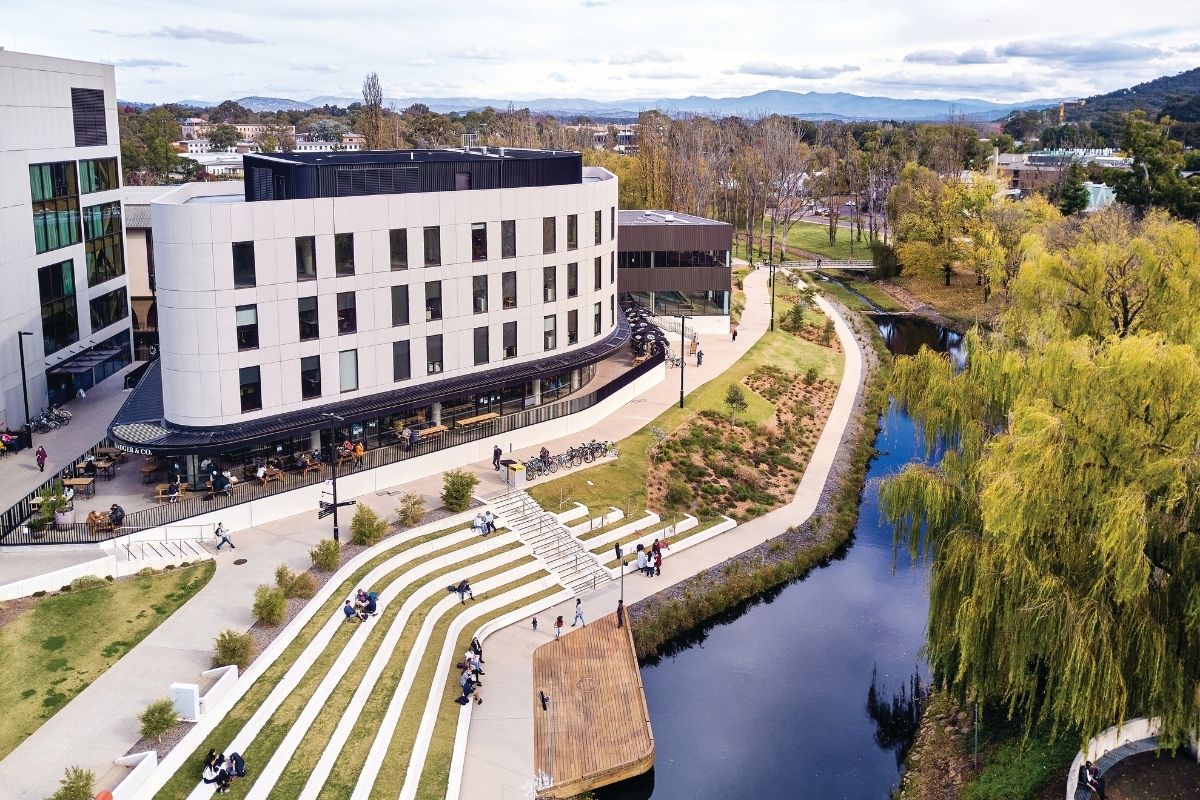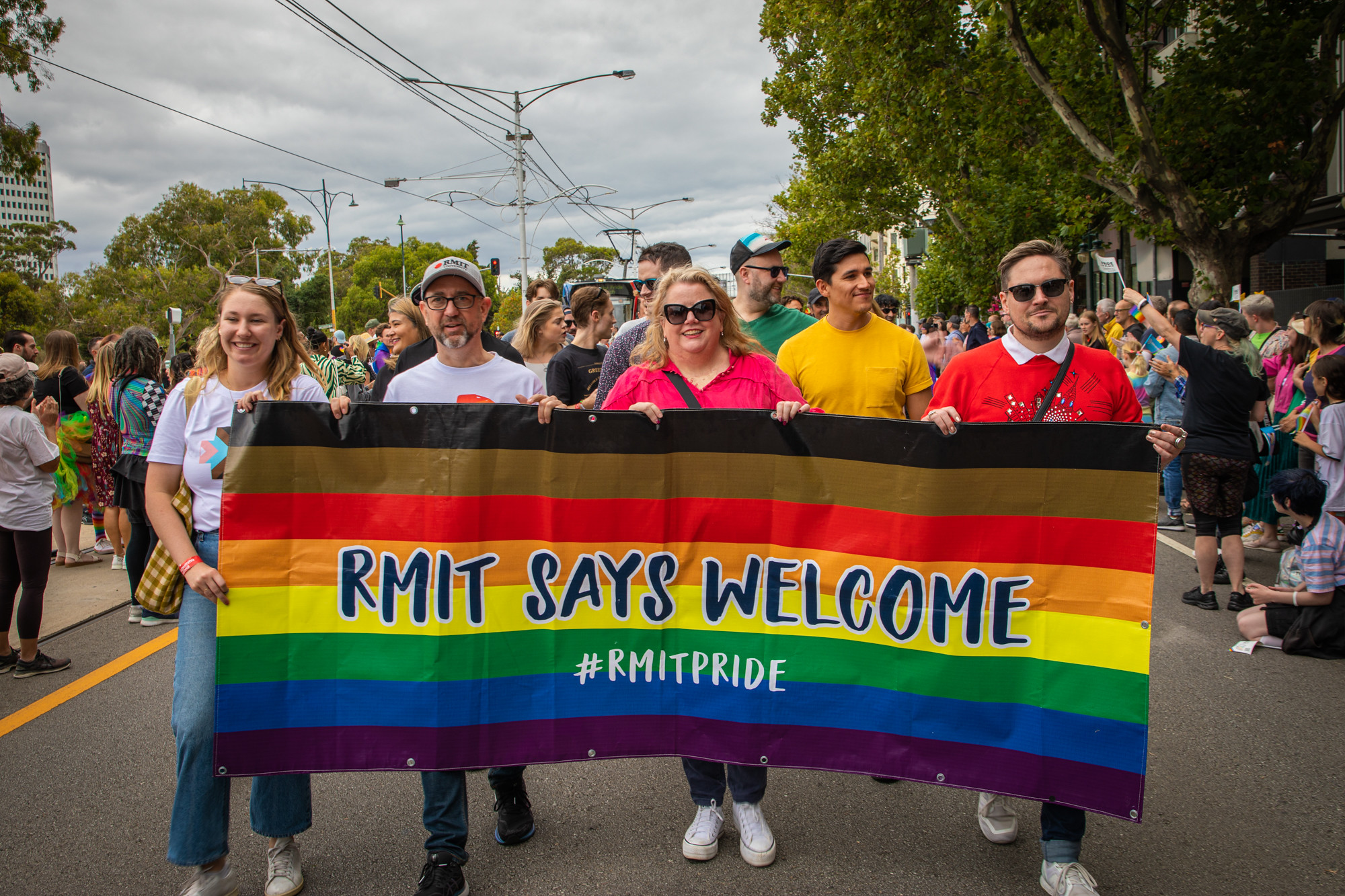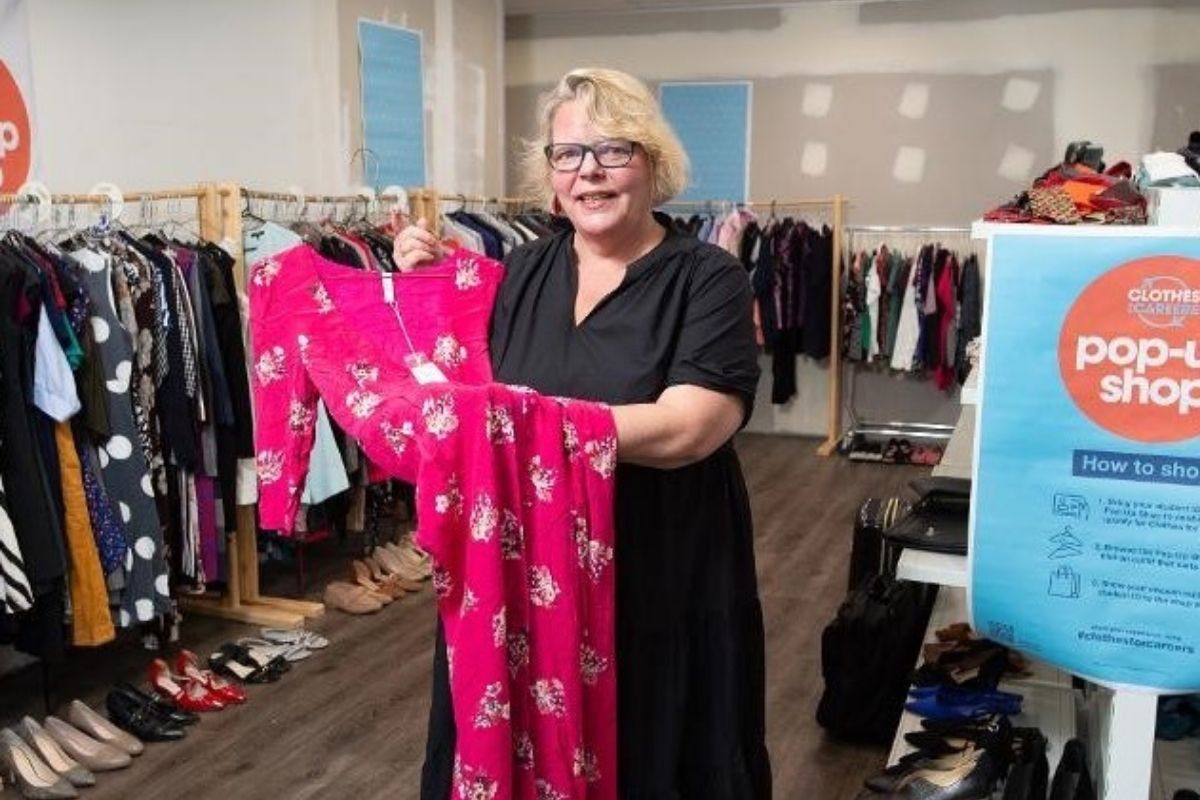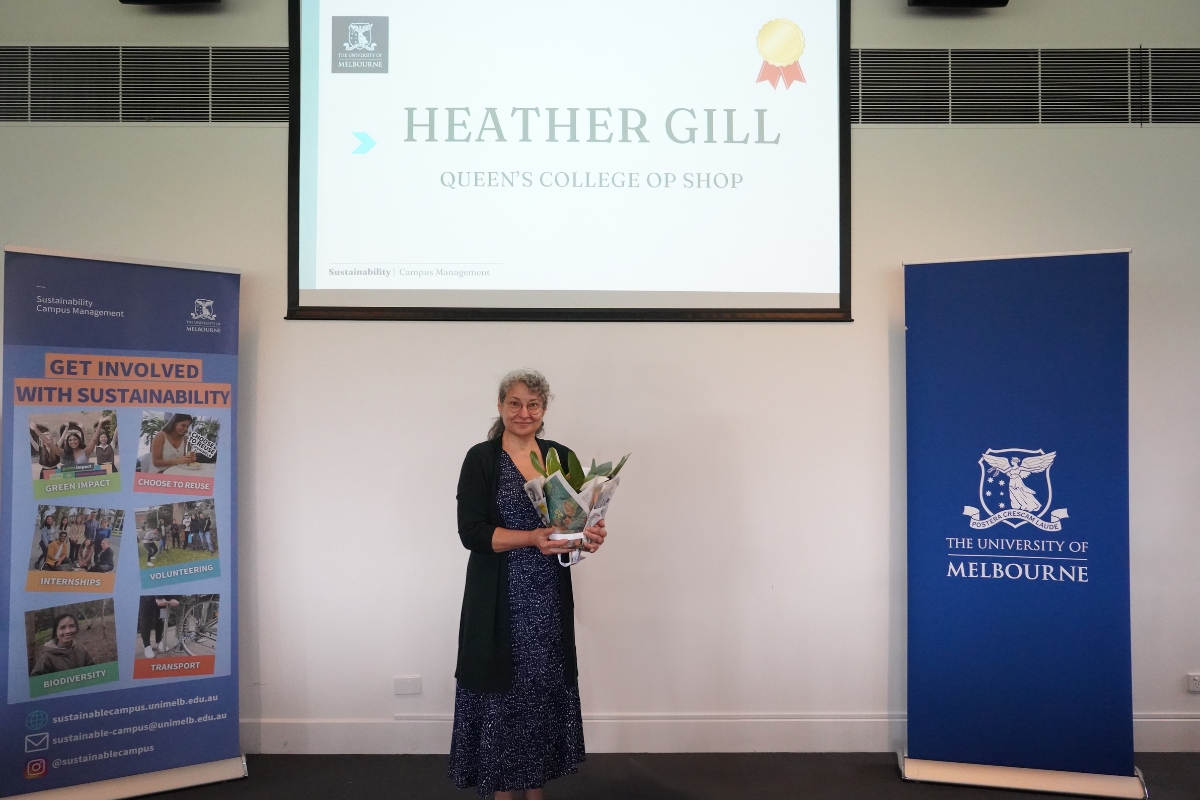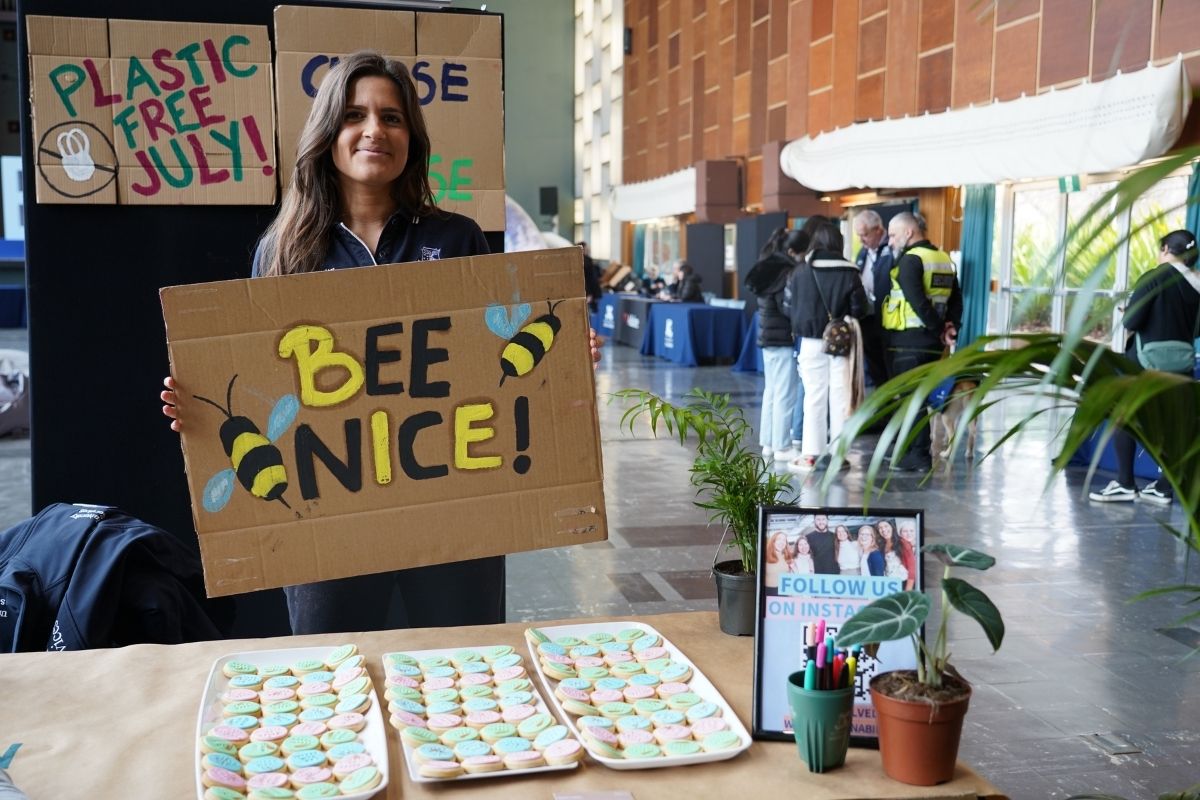Creating Impact/Highly Commended category
Auckland University of Technology (AUT) has launched a comprehensive waste management initiative, “No Time to Waste at AUT,” aimed at reducing general waste to landfill by 50% by 2025, as outlined in its Sustainability Plan. The initiative encompasses two key components: on-site sorting of general waste, recycling, and organic waste at the university’s campuses, and an ambitious target to divert 90% of construction and demolition (C&D) waste from landfill during the refurbishment and construction of two key university buildings. These efforts reflect AUT’s commitment to sustainability, leveraging procurement practices to drive significant environmental impact.
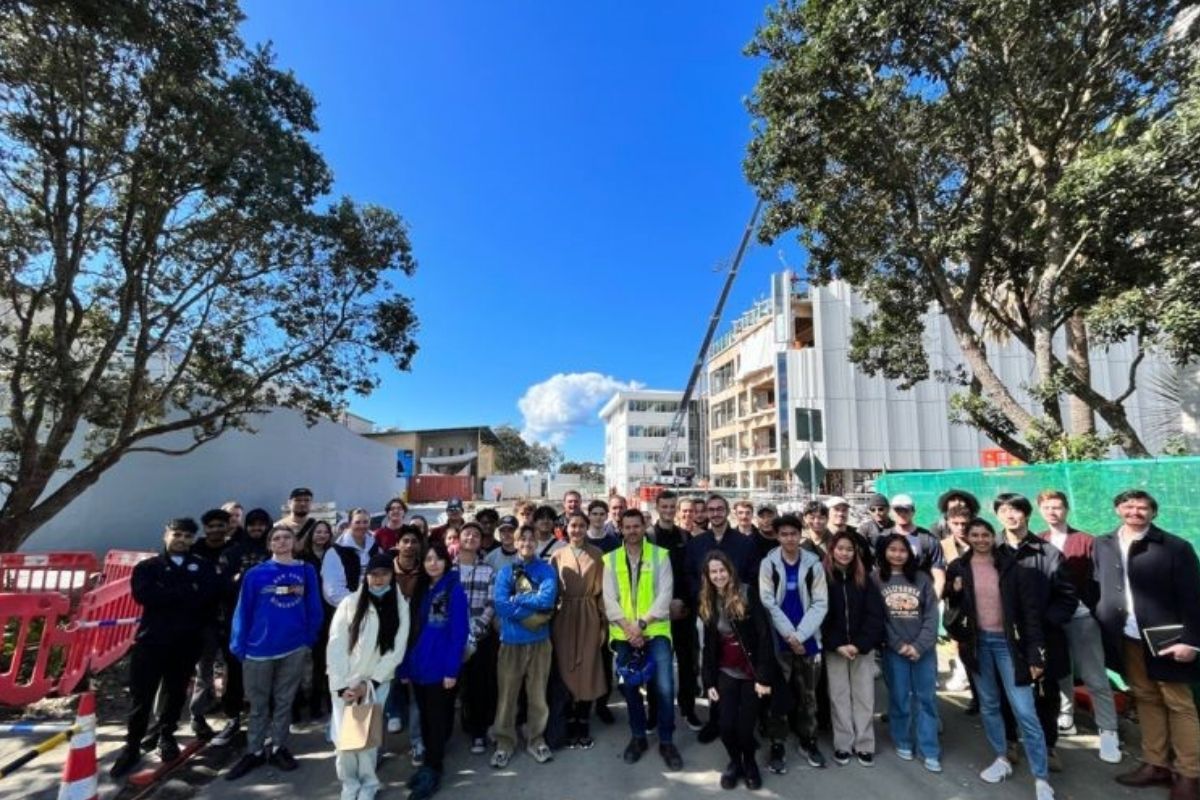
Environmental and Social Benefits
- Waste Diversion: The on-site sorting initiative has successfully reduced the amount of waste sent to landfill from 80% in 2018 to 50% in 2023, with 52.5 tonnes being recycled or composted*. This shift maximises the recovery of valuable materials and reduces the demand for landfill space.
- CO2e Emissions Reduction: By diverting waste from landfill, AUT lowers its CO2e emissions, contributing to its broader sustainability goals.
- Construction Waste Management: The initiative’s success in diverting 90% of C&D waste from the building project sets a standard in the construction industry, showcasing the potential for substantial environmental benefits through better waste management practices.
Leadership and Engagement
- Cross-Campus Collaboration: The initiative involved various teams within AUT, including Estates, Procurement, and the Sustainability team, ensuring broad engagement and shared responsibility. The collaboration with Naylor Love Construction to achieve the 90% C&D waste diversion target demonstrates strong leadership in sustainable construction practices.
- Educational Integration: Architecture students at AUT had the opportunity to visit the construction site and participate in lectures on waste reduction, linking academic learning with real-world sustainability practices.
- Data-Driven Approach: The use of actual weight data from waste streams enables more targeted and effective communication strategies to further reduce waste and contamination, reinforcing the initiative’s impact.
Significance to the Sector
- Innovative Practices: AUT is one of only a few organisations in New Zealand implementing on-site waste sorting, placing the university at the forefront of waste management innovation. The initiative not only reduces waste to landfill but also sets a precedent for others in the sector to follow.
- Sustainability Leadership: The integration of waste reduction targets into procurement contracts, such as the 90% C&D waste diversion clause with Naylor Love, exemplifies how strategic procurement can drive sustainability outcomes. This approach can be replicated across the sector, influencing broader industry practices.
- Scalability: The initiative’s success, achieved without a dedicated sustainability budget, highlights its scalability. Other institutions can adopt similar practices by leveraging existing resources and procurement strategies.
Wider Societal Impact
- Industry Influence: The initiative has broader implications for the construction industry in New Zealand, demonstrating that achieving high levels of waste diversion is possible and financially beneficial. Naylor Love’s development of a micro-credential for Resource Sorters, now part of their nationwide operations, exemplifies the initiative’s far-reaching impact.
- Sustainability Education: By involving students and incorporating sustainability into the curriculum, AUT is educating the next generation of professionals who will advocate for and implement sustainable practices in their careers.
- Community Engagement: The waste sorting initiative’s expansion across all campuses and its potential to include on-campus composting foster a culture of sustainability among staff and students, encouraging broader community engagement in environmental responsibility.
Auckland University of Technology’s “No Time to Waste at AUT” initiative demonstrates a transformative approach to waste management, combining innovative practices, strategic procurement, and strong leadership to achieve significant environmental benefits. The initiative not only aligns with AUT’s sustainability goals but also serves as a model for the sector, showcasing the potential for positive change through targeted waste reduction efforts. This project demonstrates how institutions can drive industry-wide improvements, influence future professionals, and contribute to a more sustainable future.
* As this initiative is implemented across all of AUT’s campuses the waste sent to landfill is fluctuating. In July 2024 diversion from landfill was 40% with two campuses having onsite sorting. When the third campus has onsite sorting, it is expected to consistently divert 50% from landfill.
Top 3 learnings
Supported by

Category finalists
Creating Impact/Winners
Creating Impact/Winners
Creating Impact
Creating Impact
Highly Commended/Nature Positive
Highly Commended/Nature Positive
Climate Action/Highly Commended
Climate Action/Highly Commended
Diversity, Equity and Inclusion/Highly Commended
Diversity, Equity and Inclusion/Highly Commended
Highly Commended/Staff Champion
Highly Commended/Staff Champion
Highly Commended/Sustainability Leadership
Highly Commended/Sustainability Leadership
Past winners
Benefitting Society/Winners
Benefitting Society/Winners
Diversity, Equity & Inclusion in Sustainability/Winners
Diversity, Equity & Inclusion in Sustainability/Winners
Climate Action/Winners
Climate Action/Winners
Sustainability Institution of the Year/Winners
Sustainability Institution of the Year/Winners
Creating Impact/Winners
Creating Impact/Winners
Creating Impact/Winners
Creating Impact/Winners
Top 3 learnings
Creating Impact/Highly Commended category
Auckland University of Technology (AUT) has launched a comprehensive waste management initiative, “No Time to Waste at AUT,” aimed at reducing general waste to landfill by 50% by 2025, as outlined in its Sustainability Plan. The initiative encompasses two key components: on-site sorting of general waste, recycling, and organic waste at the university’s campuses, and an ambitious target to divert 90% of construction and demolition (C&D) waste from landfill during the refurbishment and construction of two key university buildings. These efforts reflect AUT’s commitment to sustainability, leveraging procurement practices to drive significant environmental impact.

Environmental and Social Benefits
- Waste Diversion: The on-site sorting initiative has successfully reduced the amount of waste sent to landfill from 80% in 2018 to 50% in 2023, with 52.5 tonnes being recycled or composted*. This shift maximises the recovery of valuable materials and reduces the demand for landfill space.
- CO2e Emissions Reduction: By diverting waste from landfill, AUT lowers its CO2e emissions, contributing to its broader sustainability goals.
- Construction Waste Management: The initiative’s success in diverting 90% of C&D waste from the building project sets a standard in the construction industry, showcasing the potential for substantial environmental benefits through better waste management practices.
Leadership and Engagement
- Cross-Campus Collaboration: The initiative involved various teams within AUT, including Estates, Procurement, and the Sustainability team, ensuring broad engagement and shared responsibility. The collaboration with Naylor Love Construction to achieve the 90% C&D waste diversion target demonstrates strong leadership in sustainable construction practices.
- Educational Integration: Architecture students at AUT had the opportunity to visit the construction site and participate in lectures on waste reduction, linking academic learning with real-world sustainability practices.
- Data-Driven Approach: The use of actual weight data from waste streams enables more targeted and effective communication strategies to further reduce waste and contamination, reinforcing the initiative’s impact.
Significance to the Sector
- Innovative Practices: AUT is one of only a few organisations in New Zealand implementing on-site waste sorting, placing the university at the forefront of waste management innovation. The initiative not only reduces waste to landfill but also sets a precedent for others in the sector to follow.
- Sustainability Leadership: The integration of waste reduction targets into procurement contracts, such as the 90% C&D waste diversion clause with Naylor Love, exemplifies how strategic procurement can drive sustainability outcomes. This approach can be replicated across the sector, influencing broader industry practices.
- Scalability: The initiative’s success, achieved without a dedicated sustainability budget, highlights its scalability. Other institutions can adopt similar practices by leveraging existing resources and procurement strategies.
Wider Societal Impact
- Industry Influence: The initiative has broader implications for the construction industry in New Zealand, demonstrating that achieving high levels of waste diversion is possible and financially beneficial. Naylor Love’s development of a micro-credential for Resource Sorters, now part of their nationwide operations, exemplifies the initiative’s far-reaching impact.
- Sustainability Education: By involving students and incorporating sustainability into the curriculum, AUT is educating the next generation of professionals who will advocate for and implement sustainable practices in their careers.
- Community Engagement: The waste sorting initiative’s expansion across all campuses and its potential to include on-campus composting foster a culture of sustainability among staff and students, encouraging broader community engagement in environmental responsibility.
Auckland University of Technology’s “No Time to Waste at AUT” initiative demonstrates a transformative approach to waste management, combining innovative practices, strategic procurement, and strong leadership to achieve significant environmental benefits. The initiative not only aligns with AUT’s sustainability goals but also serves as a model for the sector, showcasing the potential for positive change through targeted waste reduction efforts. This project demonstrates how institutions can drive industry-wide improvements, influence future professionals, and contribute to a more sustainable future.
* As this initiative is implemented across all of AUT’s campuses the waste sent to landfill is fluctuating. In July 2024 diversion from landfill was 40% with two campuses having onsite sorting. When the third campus has onsite sorting, it is expected to consistently divert 50% from landfill.
Supported by

Related finalists
Creating Impact/Winners
Creating Impact/Winners
Creating Impact
Creating Impact
Highly Commended/Nature Positive
Highly Commended/Nature Positive
Climate Action/Highly Commended
Climate Action/Highly Commended
Diversity, Equity and Inclusion/Highly Commended
Diversity, Equity and Inclusion/Highly Commended
Highly Commended/Staff Champion
Highly Commended/Staff Champion
Highly Commended/Sustainability Leadership
Highly Commended/Sustainability Leadership
Other finalists
Climate Action

Driving Towards Tomorrow’s Campus with Vehicle-to-Grid EV Technology
As part of Flinders University’s drive to innovate and become a leader in climate action, the University launched its Vehicle-to-Grid (V2G) initiative. This involved installing and maintaining 20x V2G and smart chargers for its growing electric vehicle fleet. Leveraging 100% renewable energy generated by ENGIE’s Willogoleche Wind Farm and Flinders University’s solar power systems, this enables the storage of renewable energy in EV batteries to be discharged on campus during peak demand periods. Hence, allows for these EV fleets to operate as a Virtual Power Plant (VPP) to deliver peak demand management and optimization of behind-the-meter generation.
Overall, this initiative demonstrates the reliability and scalability of bi-directional and uni-directional smart-charging systems for EVs in reducing GHG emissions while facilitating teaching, research, and innovation opportunities. Moreover, it exemplifies a sustainable and innovative solution to scale energy storage technology and increase renewables.
Sustainability Champion – Staff/Winners

Brandan Espe
Environmental Officer / Acting Grounds Supervisor
Brandan has brought over 50 federally listed Endangered species of plant into the James Cook University living collection, many of which have never been cultivated and are found in no other collection in the world.
Of these, over half have been sustainably wild collected, inclusive of field and clone data, so they can be used for ongoing conservation, research and teaching, the remaining being sourced from private and partner organisations through favours of service or trades.
He personally funded the project from 2019-2022, until funding was awarded for the program due to its success, with the program now being engrained into the Universities landscapes for ongoing management should he leave JCU, creating a threatened species legacy collection.
The program has now expanded beyond this, with an additional 48 species now funded for further addition, some of which are only known from less than 5 sightings in history.
Student Engagement

Sustainability Leaders creating real impact!
La Trobe created a unique Sustainability Leaders volunteering program to increase engagement with students on campus and empower them to act against waste and promote sustainability. It included the following initiatives:
- Promoting the reusable crockery implementation,
- Increasing knowledge action of other students on campus to diversion comingled recycling and organic waste from landfill.
- Focus on waste audits and data,
- Improved signage through new waste posters for students living on campus.
- Collaboration with Cirka (our cleaning and waste partner) to create a waste wall and;
- Learning all things sustainability (net zero, biodiversity, waste, reusables, engagement)
These initiatives yielded significant results and with a reduction in waste contamination by almost 40% at the residential buildings and engagement with over 80 groups of people for the Reusable Revolution.
Creating Impact

Where knowledge meets habits: Empowering students for a sustainable tomorrow
Our online Sustainability Challenges offer participants an engaging, self-paced learning experience centered around a specific United Nations Sustainable Development Goal (UNSDG). Requiring minimal resourcing and at zero-cost to participants, we’ve created replicable, compact, scalable, and impactful learning opportunities that result in real impact.
The Challenges follow a structured process that moves participants from knowledge gain to simple action to celebration, to establish small but mighty habits relating to waste and carbon emissions. This approach recognises that knowledge alone is often insufficient to drive behaviour change, and that ease of action and celebration are crucial components in creating sustainable habits.
Sustainability Champion – Staff/Winners

Catherine (CeeJay) Donovan
Veterinary nurse – Anaesthesia
From establishing the Massey Vet School Green Team to leading impactful initiatives, my commitment to environmental sustainability has been making waves. With the help of my team, I have accomplished numerous small, yet meaningful actions, including integrating a sustainability lecture for final year vet students and implementing battery recycling alongside rechargeable battery use. Our larger projects encompass the introduction of green waste and soft plastics recycling bins, an energy audit resulting in power-saving measures, and playing a part in a successful rubbish audit. I spearheaded the ‘6 in 6’ campaign, empowering individuals with six simple steps for workplace sustainability. Through the SustainaVet social media pages I help to educate and inspire peers nationwide. As the Massey School of Veterinary Science sustainability champion, I had the privilege of speaking at the annual veterinary conference on sustainability in clinical practice. Currently I’m conducting pioneering research on responsible cat waste disposal. Together, we’re forging a greener future, one initiative at a time.
Sustainability Champion – Student

Louis Walmsley
SDG Coordinator Monash Association of Sustainability, Office Bearer Monash Student Association’s Environmental and Social Justice Department, Masters of Environment and Sustainability Student
Louis is an exceptional student sustainability leader at Monash University. His passion and dedication to sustainability have made a significant impact on the community. Louis’s values revolve around sustainability, which is evident upon meeting him. He actively participates in various sustainability groups, demonstrating his commitment to creating a more environmentally conscious society.
One of Louis’s notable involvements is with Precious Plastic Monash, where he organizes remarkable events and fosters collaboration among like-minded individuals, student groups, and staff. His contributions to the Monash Association of Sustainability have allowed him to conduct valuable research on plastic usage and climate action, resulting in positive changes within the university.
Through his work with the Monash Student Association, Louis has engaged hundreds of students in fun and interactive sustainability initiatives. He took the initiative to organize a sustainability food fair, which was one of the largest sustainability-related events held at Monash post-COVID. This accomplishment is a true testament to Louis’s hard work and creativity.
Louis is an outstanding student leader whose efforts in sustainability have had a lasting impact on Monash University and its community. His inspiring nature resonates with everyone who knows him.

